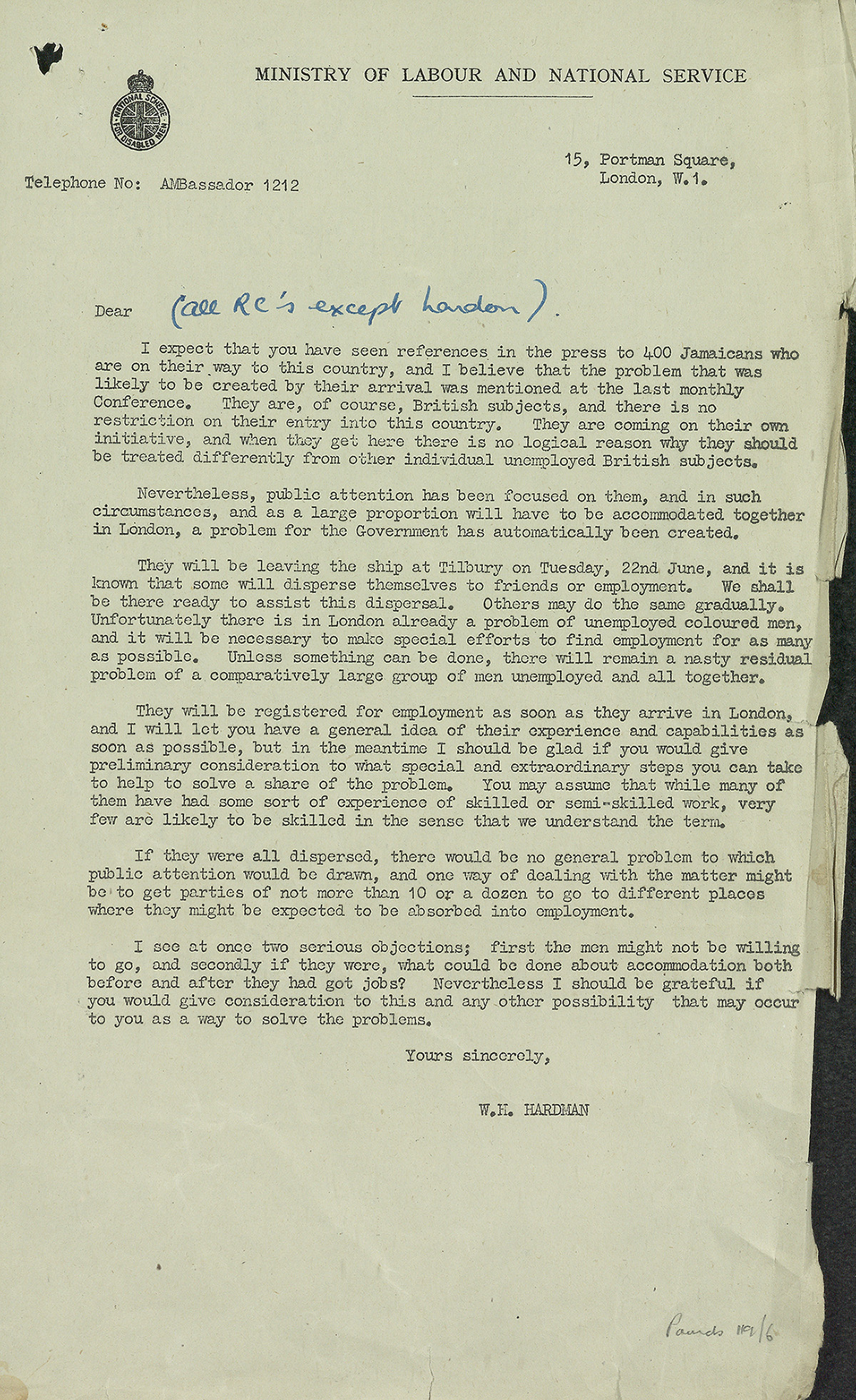
A letter from Mr. Hardman at the Ministry of Labour and National Service Department to all Reception Centres for receiving passengers from Empire Windrush, 1948. Catalogue ref: LAB 26/218
Contains original language used at the time, which is not appropriate today.
- What does the term ‘British Subject’ mean in the context of this document?
- What preparations are being made to find employment for those arriving from Jamaica?
- Why does London have an unemployment problem, according to this document?
Transcript
MINISTRY OF LABOUR AND NATIONAL SERVICE
Telephone No: Ambassador 1212 15, Portman Square,
London, W.1.
Dear (All R.C.s [Reception Centres] except London,
I expect that you have seen references in the press to 400 Jamaicans who are on their way to this country, and I believe that the problem that was likely to be created by their arrival was mentioned at the last monthly Conference. They are of course, British Subjects, and there is no restriction on their entry into this country. They are coming on their own initiative, and when they get here there is no logical reason why they should be treated differently from other individual unemployed British subjects.
Nevertheless, public attention has been focused on them, and in such circumstances, and as a large proportion will have to be accommodated together in London, a problem for the Government has automatically been created.
They will be leaving the ship at Tilbury on Tuesday, 22nd June, and it is known that some will disperse themselves to friends or employment. We shall be there ready to assist this dispersal. Others may do the same gradually. Unfortunately, there is in London already a problem of unemployed coloured men, and it will be necessary to make special efforts to find employment for as many as possible. Unless something can be done, there will remain a nasty residual problem of a comparatively large group of men unemployed and all together.
They will be registered for employment as soon as they arrive in London, and I will let you have a general idea of their experience and capabilities as soon as possible, but in the meantime, I should be glad if you would give preliminary consideration to what special and extraordinary steps you can take to help to solve a share of the problem. You may assume that while many of them have had some sort of experience of skilled or semi-skilled work, very few are likely to be skilled in the sense that we understand the term.
If they were all dispersed, there would be no general problem in which public attention would be drawn, and one way of dealing with the matter might be to get parties of not more than 10 or a dozen to go to different places where they might be expected to be absorbed into employment.
I see at once two serious objections; first the men might not be willing to go, and secondly if they were, what could be done about accommodation both before and after they got jobs? Nevertheless, I should be grateful if you would give consideration to this and any other possibility that may occur to you as a way to solve the problems.
Yours sincerely
W.H. HARDMAN
